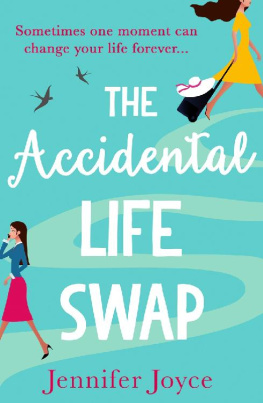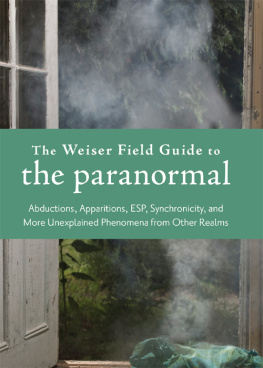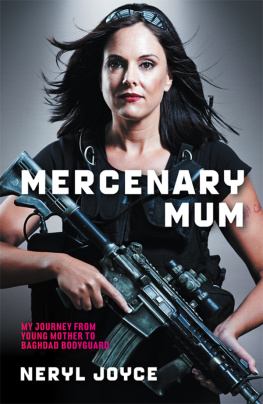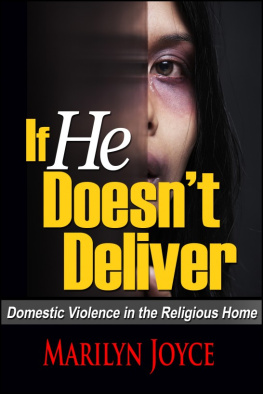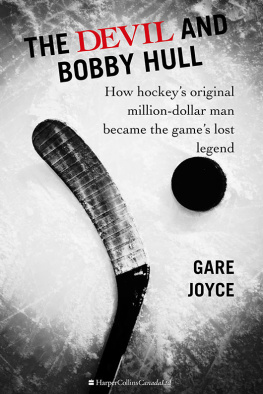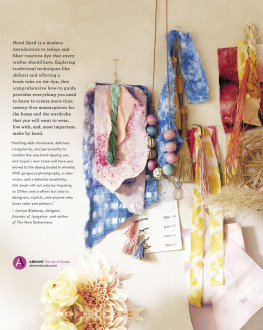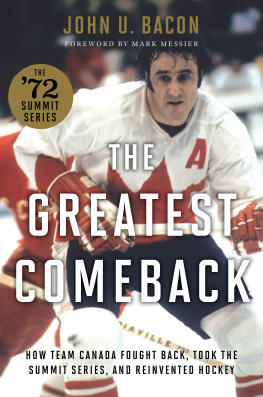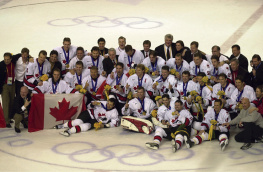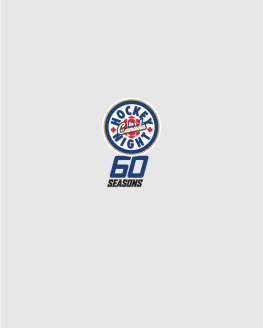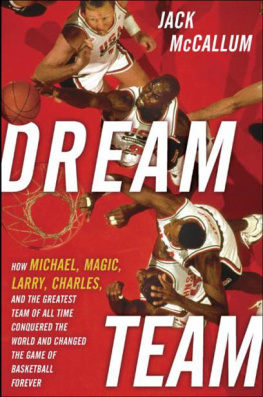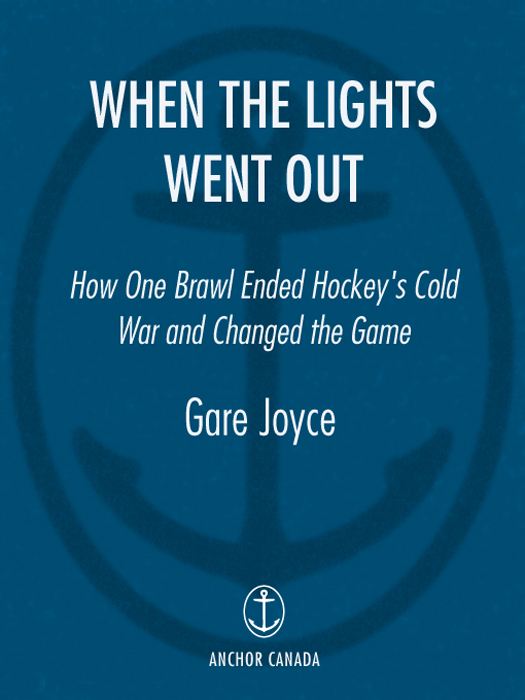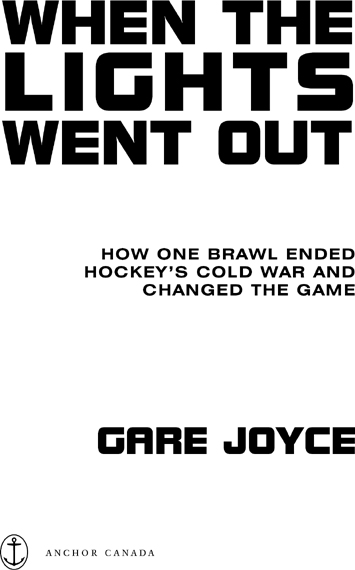To Ellen, Laura, and Susan
CONTENTS
PART I
When the Lights Went Out:
The History of a Hockey War
PART II
When the Lights Came Back On:
An Account of Young Men Defeating
Rivals, Beating Demons, Taking Refuge and
Defying Human Nature
PART III
When the Lights Dim:
Fond Memories and a Few Regrets
Twenty Years Later
ACKNOWLEDGEMENTS
This book is the product of more than 100 interviews over the course of the year. Almost everybody I contacted generously gave their time and best recollection of events 20 years in the past. What was remarkable wasnt that so much was forgottenbut rather that so much was remembered in vivid detail. I wont thank all by name here, but I will reserve special mention for a few: Pat Burns, who spent a morning hearing me out during his recovery from cancer; Sandy Templeton, who put into full perspective her late husbands life and accomplishments (no truly bad man could win the love and devotion of a woman so kind); Jim Cressman, whose authority and years of service to the game are the stuff I can only aspire to; Sherry Bassin, who, on Piestany as on everything else, was never at a loss for words and good humour; Shawn Simpson, who answered every call; Everett Sanipass and his father Joe, who dodged no questions; Alexander Mogilny, who can be as entertaining in an interview as he ever was on the ice; Professor Robert Edelman, who held my hand as he walked me through the history of Soviet sport; and Dennis McDonald, who scheduled his interview around his wifes medical treatments. These people went above and beyond and for that I am forever thankful.
Many people who were not quoted here played crucial roles in helping me research this book: George Milkov at ESPN The Magazine provided the translation for the interviews with the Soviet coaches; Artem Telepin Nicholaevich, Sergei Samoilev and Todd Diamond dug up numbers for contacts in Russia; and Tim Campbell ran down contacts in Winnipeg. For their sundry roles I must thank Paul Romanuk in London, UK, Dave Langford of London, Ont., Jim Kelley in Buffalo (the London of Western New York), Mike Sands of the Calgary Flames, Craig Button of the Toronto Maple Leafs, Tom Harrington of the CBC, sports librarian Dave Pal, thinking mans goaltender Seamus Kotyk, Stan Butler of the Brampton Battalion, Brian Kilrea of the Ottawa 67s, Mark Giles at ESPN The Magazine, Derek Finkle of the much-missed Toro magazine, Ken Campbell of The Hockey News, Terry Koshan of the Toronto Sun, Canadian matinee idol Doug Bell, and Brad Pascal and Andre Brin of Hockey Canada. NHL media relations folk who bailed me out include John Hahn in Detroit, Zack Hill in Philly, Peter Hanlon in Calgary and Michael Gilbert in Buffalo.
A few journalists and historians must be acknowledged here. While everybody had the story of the fall-out from Piestany, Jim Cressmans work in the London Free Press was the definitive account of the tournament itself. And CBCs coverage of the game remains riveting stuff all these years later, with Don Wittman, Sherry Bassin and Fred Walker doing yeoman work. The best accounts of the 1986 WJC appeared in The Hamilton Spectator. The best profile of Bert Templeton was written by William Houston in The Globe and Mail a few years after Piestany. The Canadian Press detailed all the bench-clearings in and around the time of Piestany. The definitive history of Soviet sport is Professor Edelmans Serious Fun. There are dozens of sources for the history of Canada and the Soviets in the bygone era of the game, but a favorite of mine is the late Scott Youngs War on Ice.
This book would have remained a foggy notion if I hadnt been aided and abetted by two consummate professionals: my agent Rick Broadhead, who will not only take my call but answer my email on a Sunday (at 2 a.m.), and my editor at Doubleday Canada, Nick Massey-Garrison, who suffered my quick, rough draft and, oh, about eight macro- and micro-edits.
Finally, Id like to thank my daughters Ellen and Laura for their patience and support. (Ellen at age seven showed real upside as a hockey journalist by asking Cliff Fletcher why the Leafs practiced on ice. For her part, Laura is still stung by the fact that I wrote about a Canadian junior team that Darcy Tucker didnt play on.) And Id like to thank my partner in life and words, Susan Bourette. I promise, Ill only ask you to read this one more time.
PROLOGUEVANCOUVER
Remembering and Trying to Forget
F ortysomethings who were once national sports heroes are milling around a conference room at the Westin Hotel, a study in vintage testosterone. Those who once knew glory are now staring down middle age. But the next best thing to playing a championship season is replaying it. Reading the old clippings, leafing through the photographs and telling stories told many times over the years: a poor second to the original act, but still the next best thing. Hockey Canada has invited members of the 1982 and 1985 Canadian under-20 teams to the 2006 World Junior Championship in Vancouver, a reunion of the first Canadian squads to win the WJC, back when Canadian hockey fans were discovering the tournament. It has taken no time for the former teammates to pick up where they left off. Theyre transported back to a time before their hairlines started to recede. Back to a time before some of them made millions and before others realized they wouldnt.
Hockey Canada officials are all smiles. The reunion is a big success. Reporters are chasing the former players before theyre bused off to their exhibition shinny game. Making small talk with the Hockey Canada officials, I suggest they should consider a reunion of the 1987 team. After all, I say, that 1987 team had lost only one game at the WJC, and it was the most successful Team Canada ever if the measure is how many players made it to the NHL. Just a few weeks before, one alumnus of that 87 Canadian team passed 500 NHL goals, while another is approaching 600. A key player on the 1987 team went on to become a key player on the 1989 Stanley Cup champions. One of his linemates at the world juniors that year went on to win Stanley Cups with three different clubs. Add in a couple of Olympic gold medals. The 1987 squad was a team of winners.
An uncomfortable silence follows. The Hockey Canada officials look at me as if Ive just announced that I have a bomb strapped to my chest. Initial reaction: slack-jawed disbelief. Subsequent reaction: the wincing smile produced by a joke in bad taste. I dont think so, says one guy wearing his Hockey Canada lapel pin. He looks around the room to see if any cameras are trained on himif he is being punked or pranked. This is how Hockey Canada feels about 1987.

The game between that never-to-be-reunited Canadian team and the Soviet squad at the 1987 World Junior Championships is one of the most famous and infamous in hockey history. One poll rated it the fourth most famous game in international hockey history, the only junior game in the top ten. Yet if you trust the record book, it never happened. If you look up the final standings at the 1987 WJC, the International Ice Hockey Federations under-20 tournament, youll find the final standings: gold to Finland, silver to Czechoslovakia, bronze to Sweden. If you look for Canada and the Soviet Union, you wont find them. The IIHF officials kicked those two teams out of the tournament. The Canadians who had won the tournament in 1982 and 1985. The Soviets who had won seven championships in the tournaments ten-year history. Canada and the USSR, DQed. The results of their games, voided, wiped. The IIHF handed victory to a Finnish team and medals to the others by executive decision, a vote, rather than the sum of all games on the ice. Its the sort of rewriting of history that evokes Soviets revisionism, doctoring photographs to remove discredited politicians. The Canadians and the Soviets, the players on both sides, came away with nothing more than stamps in their passports, asterisks, and memories of a few weeks together.


